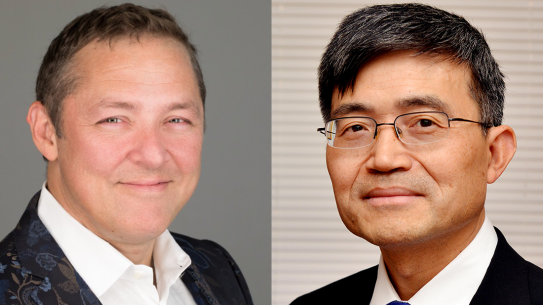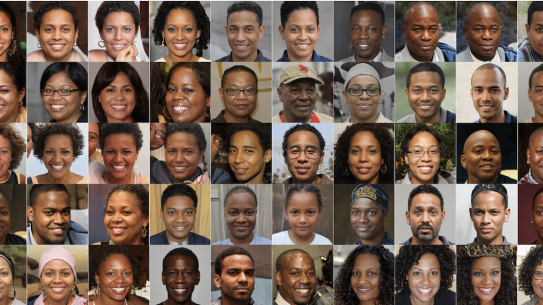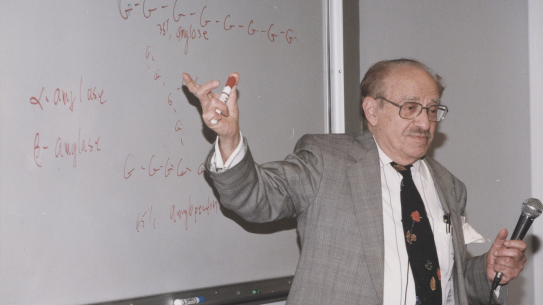India Honors Alum, Civic Leader, and Entrepreneur Ashook Ramsaran
Ashook Ramsaran would sneak off to school when he was supposed to be working with his older brother in rice fields his father planted. The six-year-old’s family, like so many in the farming village of Letter Keeny on the coast of Guyana where he lived, relied on every member to help provide income. Education was a luxury.
Sixty years, two degrees from Polytechnic Institute of NYU (’74 BS EE and ’77 MS EE), a successful start-up, and many achievements later, the government of India gave Mr. Ramsaran the highest honor it bestows to foreign-based people of Indian origin.
India’s President Pratibha Patil conferred the prestigious Pravasi Bharatiya Divas Samman Award at a gala ceremony on January 9, 2011 in New Delhi upon Mr. Ramsaran and 13 other recipients who have enhanced India’s image and prestige while helping their respective communities.
The Diaspora
Mr. Ramsaran’s great grandparents came to Guyana, then British Guiana, from the Indian state of Bihar or Uttar Pradesh in the mid 1800s, during the period of British colonialism, as indentured laborers. His father, Ramsaran Ramlochan, worked as a supervisor in a British sugar plantation. Income as well as rice from the fields the young Ramsaran would sneak away from supplemented the low plantation wages that supported the elder Ramsaran’s wife and ten children.
Trying circumstances like the Ramsaran’s were familiar to Indians whose families emigrated to various parts of the globe under the British indenture system. In search of better livelihoods and to fill the need for plantation labor, more than one million laborers left India between 1826 and 1920. In addition to financial pressures and harsh working conditions, holding on to their Indian culture became a necessity to provide a sense of security and community support while living in pockets of isolation so far away from their ancestral homeland.
“I felt an inherent kinship with all those descendants whose history is so similar to mine,” Mr. Ramsaran says of meeting Indians from the places where indentured laborers went during British colonial time. He met many of them through the Global Organization of People of Indian Origin (GOPIO), which he joined in 1998. “Thereafter, I developed a keen interest in knowing more about the history and worked towards connecting, promoting and preserving that history which is so meaningful to millions of us.”
Preserving Culture and Adapting to America
Mr. Ramsaran has a long record of service to the global Indian community. As GOPIO’s Executive Vice President, he has helped to build closer links between India and the entire Indian diaspora, as well as connecting the Indian diaspora in various parts of the world to each other. He worked hard and long to bring about recognition by the government of India for those who left India as indentured laborers.
Mr. Ramsaran’s efforts were realized on January 11, 2011 when the Kolkota Memorial monument was inaugurated. The inscription, written by Mr. Ramsaran, recognizes and remembers all those who left India as laborers from 1834 to 1920. Phase II of the Kolkota Memorial, which Mr. Ramsaran is spearheading, will feature a museum and resource center devoted to honoring Indian indentured laborers.
Mr. Ramsaran’s civic activities accelerated over the last 10 years when he was able to be less involved in the day-to-day operations of Ramex, the electronics manufacturing company he established in 1988. He is also very active in New York civic matters, collaborating with the New York City Mayor’s Office of Immigrant Affairs and St John’s University, as well as several other community organizations.
“My education and student experience at Polytechnic prepared me with a solid technical background and discipline in problem solving to face tough decisions head-on with confidence and skill,” says Mr. Ramsaran. “It also gave me a great sense of confidence in articulating a proposal, conducting analysis of a situation or problem, and viewing issues and their respective consequences within a larger scope.”
He adds: “I feel very fortunate to have been given the opportunity to obtain a superb education and be able to use time, talent, and resources to make a difference in the lives of so many.”
Keeping Students Connected
What advice would Mr. Ramsaran give to the many NYU-Poly students from India or of Indian descent who want to stay connected to their roots, especially those like him who choose to remain in the U.S.?
“Knowing one’s culture and ethnic background is important because it gives one a perspective of her/his past that could be helpful in her/his present and future. At the same time, one should balance that desire with adaptation and being an integral part of the new society in which she/he lives,” he explains. “It is easier these days for students from India or of Indian descent to stay connected after graduation because of the existence of many civic organizations and availability of the Internet that provide opportunities to stay connected, get involved and participate in activities.” He suggests gopio.net as a place to start.
Mr. Ramsaran and his wife Camille (formerly Camille Ramgadoo also of Guyana) live in Fresh Meadows, Queens. They are parents to two sons, Arnold and Gerald, and grandparents to Jaden, six, and Gavin, three.





